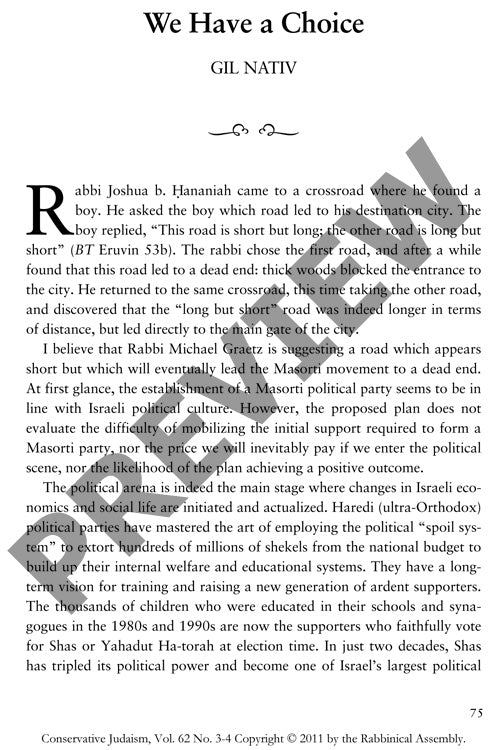We Have a Choice
Couldn't load pickup availability
Should Israel's Masorti (Conservative) movement enter the political arena? While some leaders advocate establishing a religious political party, historical evidence suggests this path would likely undermine rather than advance Conservative Judaism's influence in Israeli society. Through case study analysis of the failed Meimad party and comparative assessment of Haredi political success, fundamental obstacles emerge. Masorti constituents, shaped by Western liberal democracy, maintain clear boundaries between religious and political spheres - a stark contrast to the sectarian cohesion that enables Orthodox parties' success. Israeli voters consistently prioritize security and economic platforms over religious-state issues, as demonstrated by Meimad's comprehensive yet unsuccessful electoral bid. Political engagement risks compromising the Masorti movement's ideological integrity and public standing, while its nuanced, centrist theology attracts intellectual adherents but lacks mass electoral appeal. Alternative strategies - including media engagement, legal advocacy, and coalition-building with moderate religious groups - offer more promising pathways for advancing Conservative Jewish values in Israeli society. The analysis employs case study methodology and comparative assessment to evaluate failed precedents and organizational characteristics, revealing why educational and communicative approaches better serve the movement's goals than direct political participation.

More Information
-
Physical Description
-
Publication Information
Published 2011
ISBN
-
Publication Credits
Gil Nativ

